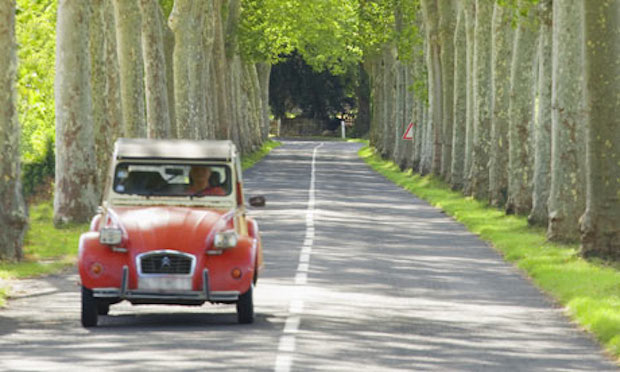Some Tips for Driving in France this Summer!
Just like any other year a lot of you may be preparing to take a trip to France. Thousands of holiday makers and visitors will be heading to France to soak up the sun, sights and sounds - but do you know the rules of the road when you get there?
According to a recent uSwitch survey, one in three UK and Irish drivers are unaware you have to drive on the right-hand side of the road in France, while three quarters are unaware the drink-drive limit is stricter in France.

These findings prompted Admiral Insurance to take a look at what their own customers get up to when driving abroad and where they're most likely to get into a spot of bother.
The research revealed the majority of customer claims abroad in 2015 happened in France, so here are some tips on what to expect when driving abroad.
1. Check you are covered - call your insurer to find out and make sure to take your certificate of insurance with you. If you've not been driving long or are under the age of 25 you'll need to check with the DVLA if you are unsure whether you can drive abroad
2. They drive on the right over there - as close as we are to France they do things differently when it comes to which side of the road to drive on. Don't get caught out!
3. Stay clear of alcohol - obviously lots of fans will be keen to indulge in a drink or two while supporting their country however, for those driving to their destination it's best to avoid the booze altogether. At 0.5mg per ml the French drink drive limit is lower than the UK limit of 0.8mg per ml so be extra careful when driving the day after a drink
4. Take a breather - according to the uSwitch survey, only 17% of respondents were aware they need to have a working breathalyser in the car with them at all times. Don't worry you can pick these up quite cheaply from Halfords or online
5. Warning signs - you'll need to make sure you have a warning triangle to put up just in case you breakdown or get into a bump
6. Dress accordingly - in addition to the breathalyser and warning triangle you'll also need a reflective jacket or waistcoat.
What about claiming abroad?
Accidents happen no matter where you go; in fact, during 2015, Admiral customers reported 716 of them. Out of those, 476 involved male customers and 240 involved female drivers.
France was the most likely spot for an accident to occur when one of our customers was abroad and there were 346 claims made there during 2015. Claiming while you're abroad isn't too different to being in the UK and you'll need to let your insurance caompany know as soon as the incident occurs.
One big difference when claiming in Europe is the fact you'll need to fill out the Agreed Statement of Facts on Motor Vehicle Accident form, you'll need to print a copy before you go.
The form is known as the Constat Amiable in France and the version you fill in will be in French - the version you print off can be used as a guide to help you fill out the form given to you by the third party.
Filling this in allows you to get your version of events across but beware, signing anywhere on the form without ticking any of the boxes in section 12 means you're agreeing with the third party's version of events.
Just like in the UK be sure to get the name and insurance details of the other driver and any passengers, photos of the incident and damage if you are able and the registration of the other vehicle. If the accident involves a lorry you'll need the registration of both the trailer and cab.

Blog submitted by: David at The French Property Network - Cle France.
This blog was originally posted by Admiral Insurance.